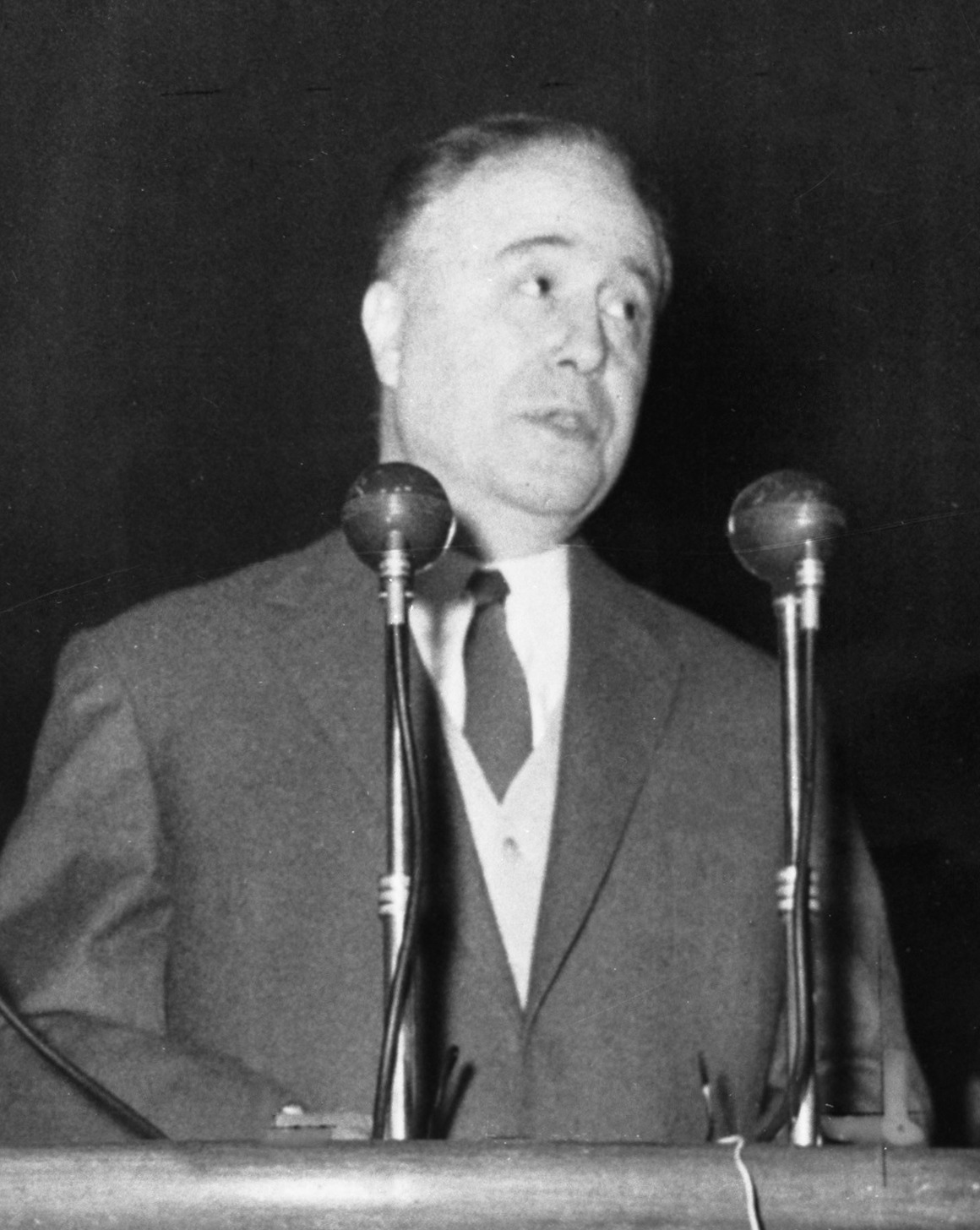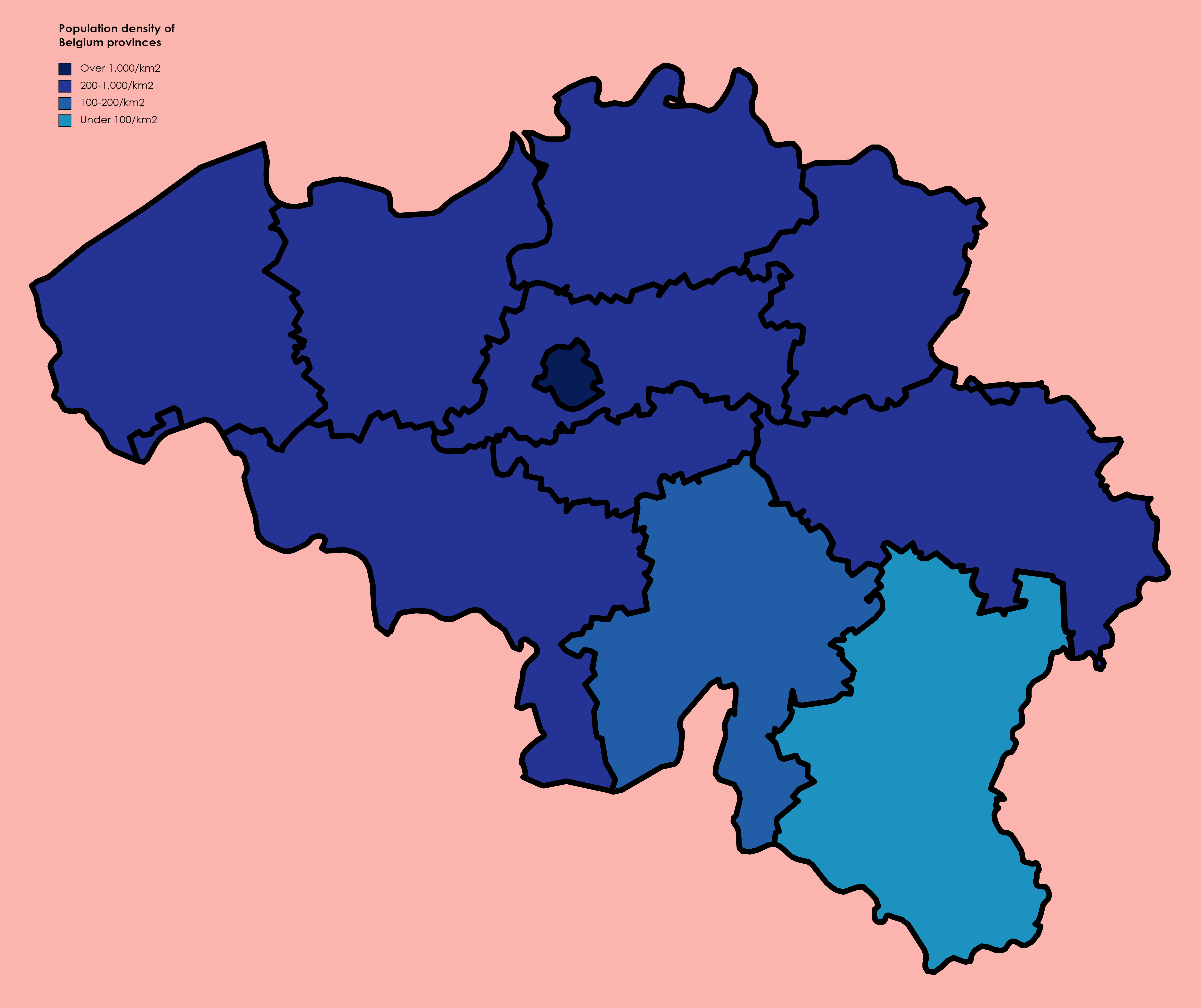|
1968 Belgian General Election
General elections were held in Belgium on 31 March 1968. The Christian Social Party (Belgium, defunct), Christian Social Party remained the largest party. Voter turnout was 90.0%.Nohlen & Stöver, p291 Elections for the nine Provinces of Belgium, provincial councils were also held. The snap elections were called after the government, a coalition of the Christian Social Party and the liberal Party for Freedom and Progress led by Christian Democrat Paul Vanden Boeynants, fell due to the Leuven Crisis. The linguistic crisis would trigger the split of the dominant Christian Social Party into a Flemish and French-speaking party. The two other main parties would follow suit. The crisis also caused the rise of small linguistic, federalist parties, such as the People's Union (Belgium), People's Union on the Flemish side and the Fédéralistes Démocrates Francophones, Democratic Front of the Francophones and Walloon Rally on the French-speaking side. Results Chamber of Deputies Senat ... [...More Info...] [...Related Items...] OR: [Wikipedia] [Google] [Baidu] |
Chamber Of Representatives (Belgium)
The Chamber of Representatives (; ; ) is one of the two chambers in the Bicameralism, bicameral Belgian Federal Parliament, Federal Parliament of Belgium, the other being the Senate (Belgium), Senate. It is considered to be the "lower house" of the Federal Parliament. Members and elections Article 62 of the Constitution of Belgium, Belgian Constitution fixes the number of seats in the Chamber of Representatives at 150. There are 11 electoral districts, which correspond with the ten Provinces of regions in Belgium, Provinces (five Dutch- and five French-speaking) and the Brussels-Capital Region. Prior to the sixth Belgian state reform, the province of Flemish Brabant was divided into two electoral districts: one for Leuven Arrondissement, Leuven and the other, named Brussels-Halle-Vilvoorde (BHV), which encompassed both the 19 bilingual municipalities from the Brussels-Capital Region and the 35 Dutch-speaking municipalities of Arrondissement of Halle-Vilvoorde, Halle-Vilvoorde in ... [...More Info...] [...Related Items...] OR: [Wikipedia] [Google] [Baidu] |
Belgian Socialist Party
The Belgian Socialist Party (, , PSB; , , BSP) was a social-democratic political party which existed in Belgium from 1945 to 1978. During its time in office, a number of progressive social reforms were introduced. The BSP was founded by activists from the Belgian Labour Party (1885–1940), which was the first Belgian socialist party. It ceased to function during the Second World War, while Belgium was under Nazi occupation. Its main support bases were the co-operative and trade union movements, and it won relatively more support in Wallonia. Like most Belgian political organisations, the party supported greater integration with the European Economic Community, albeit in a socialist context. As linguistic and community issues became more divisive, the Belgian Socialist Party split into two new entities: the Flemish Socialist Party for the Flemish community and the Parti Socialiste (PS) for the Francophone community. Presidents Election results From the 1971 general elec ... [...More Info...] [...Related Items...] OR: [Wikipedia] [Google] [Baidu] |
Kartel (electoral Alliance)
An electoral alliance (also known as a bipartisan electoral agreement, electoral pact, electoral agreement, electoral coalition or electoral bloc) is an association of political parties or individuals that exists solely to stand in elections. Each of the parties within the alliance has its own policies but chooses temporarily to put aside differences in favour of common goals and ideology in order to pool their voters' support and get elected. On occasion, an electoral alliance may be formed by parties with very different policy goals, which agree to pool resources in order to stop a particular candidate or party from gaining power. Unlike a coalition formed after an election, the partners in an electoral alliance usually do not run candidates against one another but encourage their supporters to vote for candidates from the other members of the alliance. In some agreements with a larger party enjoying a higher degree of success at the polls, the smaller party fields candidates ... [...More Info...] [...Related Items...] OR: [Wikipedia] [Google] [Baidu] |
Belgium Senate 1968
Belgium, officially the Kingdom of Belgium, is a country in Northwestern Europe. Situated in a coastal lowland region known as the Low Countries, it is bordered by the Netherlands to the north, Germany to the east, Luxembourg to the southeast, France to the south, and the North Sea to the west. Belgium covers an area of and has a population of more than 11.8 million; its population density of ranks 22nd in the world and sixth in Europe. The capital and largest metropolitan region is Brussels; other major cities are Antwerp, Ghent, Charleroi, Liège, Bruges, Namur, and Leuven. Belgium is a parliamentary constitutional monarchy with a complex federal system structured on regional and linguistic grounds. The country is divided into three highly autonomous regions:Pateman, Robert and Elliott, Mark (2006). ''Belgium'. Benchmark Books. p. 27. the Flemish Region (Flanders) in the north, the Walloon Region (Wallonia) in the south, and the Brussels-Capital Region in the middle. ... [...More Info...] [...Related Items...] OR: [Wikipedia] [Google] [Baidu] |
Red Lions (political Party)
The Red Lions () was a socialist political party in Belgium. History The party first contested national elections in 1968,Red Lion Belgian Elections but failed to secure a seat after winning less than 1% of the vote. In the 1971 general elections it received 2% of the national vote and won four seats in the Chamber of Representatives. In the Senate elections it allied with the , but failed to win a se ... [...More Info...] [...Related Items...] OR: [Wikipedia] [Google] [Baidu] |
Communist Party Of Belgium
The Communist Party of Belgium (, , KPB; , , PCB) was a political party in Belgium from 1921 to 1989. The youth wing of KPB/PCB was known as the Communist Youth of Belgium. The party published a newspaper known as ''Le Drapeau Rouge'' in French and ''De Roode Vaan'' in Dutch. History The Communist Party of Belgium was formed at a congress in Anderlecht, Brussels on 3–4 September 1921. KPB/PCB was formed through the unification of two groups, the Communist Party led by War Van Overstraeten and the Belgian Communist Party led by Joseph Jacquemotte, following a split from the Belgian Workers Party. At the time of its foundation, KPB/PCB had around 500 members. KPB/PCB became the Belgian section of the Communist International. The party gained parliamentary presence in 1925, as both Van Overstraeten and Jacquemotte were elected to the Chamber of Representatives. By 1935 KPB/PCB had 9 deputies in the Chamber and 4 members in the Senate. In 1938 it had a membership of about 8,5 ... [...More Info...] [...Related Items...] OR: [Wikipedia] [Google] [Baidu] |
Christian Social Party (Belgium, 1945)
The Christian Social Party (, ,; , , ; generally abbreviated to PSC–CVP) was a major centre-right political party in Belgium which existed from 1945 until 1968. It is sometimes referred to as the unitary Christian Social Party (''PSC unitaire''/''unitaire CVP'') to distinguish it from its two identically named successor parties. Established as the successor to the pre-war Catholic Party, the PSC-CVP was established after Belgium's Liberation in World War II with an explicitly "deconfessionalised" orientation in the Christian Democratic tradition. Conservative in outlook, it supported social welfare and limited economic redistribution. It remained the largest party in Belgian politics throughout much of its existence and was the last party in Belgian history to gain an outright majority in the 1950 elections. It provided a number of influential prime ministers and participated in most coalition governments in combination with the Belgian Socialist Party and the Liberal Party or ... [...More Info...] [...Related Items...] OR: [Wikipedia] [Google] [Baidu] |
Belgian Chamber 1968
{{Disambiguation ...
Belgian may refer to: * Something of, or related to, Belgium * Belgians, people from Belgium or of Belgian descent * Languages of Belgium, languages spoken in Belgium, such as Dutch, French, and German *Ancient Belgian language, an extinct language formerly spoken in Gallia Belgica *Belgian Dutch or Flemish, a variant of Dutch *Belgian French, a variant of French *Belgian horse (other), various breeds of horse *Belgian waffle, in culinary contexts * SS ''Belgian'', a cargo ship in service with F Leyland & Co Ltd from 1919 to 1934 *''The Belgian'', a 1917 American silent film See also * *Belgica (other) *Belgic (other) Belgic may refer to: * an adjective referring to the Belgae, an ancient confederation of Celto-Germanic tribes * a rarer adjective referring to the Low Countries or to Belgium * , several ships with the name * Belgic ware, a type of pottery * Bel ... [...More Info...] [...Related Items...] OR: [Wikipedia] [Google] [Baidu] |
Leuven Crisis
Leuven (, , ), also called Louvain (, , ), is the capital and largest city of the province of Flemish Brabant in the Flemish Region of Belgium. It is located about east of Brussels. The municipality itself comprises the sub-municipalities of Heverlee, Kessel-Lo, Leuven proper, Wilsele, Wijgmaal and part of Haasrode and Korbeek-Lo. It is the eighth largest city in Belgium, with more than 100,244 inhabitants. Leuven has been a university city since 1425. This makes it the oldest university city in the Low Countries. KU Leuven, the largest Dutch-speaking university in the world and the largest university in the Low Countries (and thus also Belgium's largest university), has its flagship campus in Leuven. The city is home of the headquarters of Anheuser-Busch InBev, the world's largest beer brewer and sixth-largest fast-moving consumer goods company. History Middle Ages The earliest mention of Leuven (''Loven'') dates from 891, when a Viking army was defeated by the Frankish ... [...More Info...] [...Related Items...] OR: [Wikipedia] [Google] [Baidu] |
Provinces Of Belgium
The Kingdom of Belgium is divided into three Communities, regions, and language areas of Belgium, regions. Two of these regions, Flanders and Wallonia, are each subdivided into five provinces. The third region, Brussels, does not belong to any province, nor is it subdivided into provinces. Instead, it has amalgamated both regional and provincial functions into a single "Capital Region" administration. Most of the provinces take their name from earlier duchy, duchies and county, counties of similar location, while their territory is mostly based on the 130 departments of the First French Empire, departments installed during French annexation. At the time of the Independence of Belgium, creation of Belgium in 1830, only nine provinces existed, including the province of Brabant, which held the City of Brussels. In 1995, Brabant was split into three areas: Flemish Brabant, which became a part of the region of Flanders; Walloon Brabant, which became part of the region of Wallonia; an ... [...More Info...] [...Related Items...] OR: [Wikipedia] [Google] [Baidu] |
Dieter Nohlen
Dieter Nohlen (born 6 November 1939) is a German academic and political scientist. He currently holds the position of Emeritus Professor of Political Science in the Faculty of Economic and Social Sciences of the University of Heidelberg. An expert on electoral system An electoral or voting system is a set of rules used to determine the results of an election. Electoral systems are used in politics to elect governments, while non-political elections may take place in business, nonprofit organizations and inf ...s and political development, he has published several books. Bibliography Books published by Nohlen include: *''Electoral systems of the world'' (in German, 1978) *''Lexicon of politics'' (seven volumes) *''Elections and Electoral Systems'' (1996) *''Elections in Africa: A Data Handbook'' (1999 with Michael Krennerich and Bernhard Thibaut) *''Elections in Asia and the Pacific: A Data Handbook'' (2001 with and Christof Hartmann) ** ''Volume 2: South East Asia, East ... [...More Info...] [...Related Items...] OR: [Wikipedia] [Google] [Baidu] |


